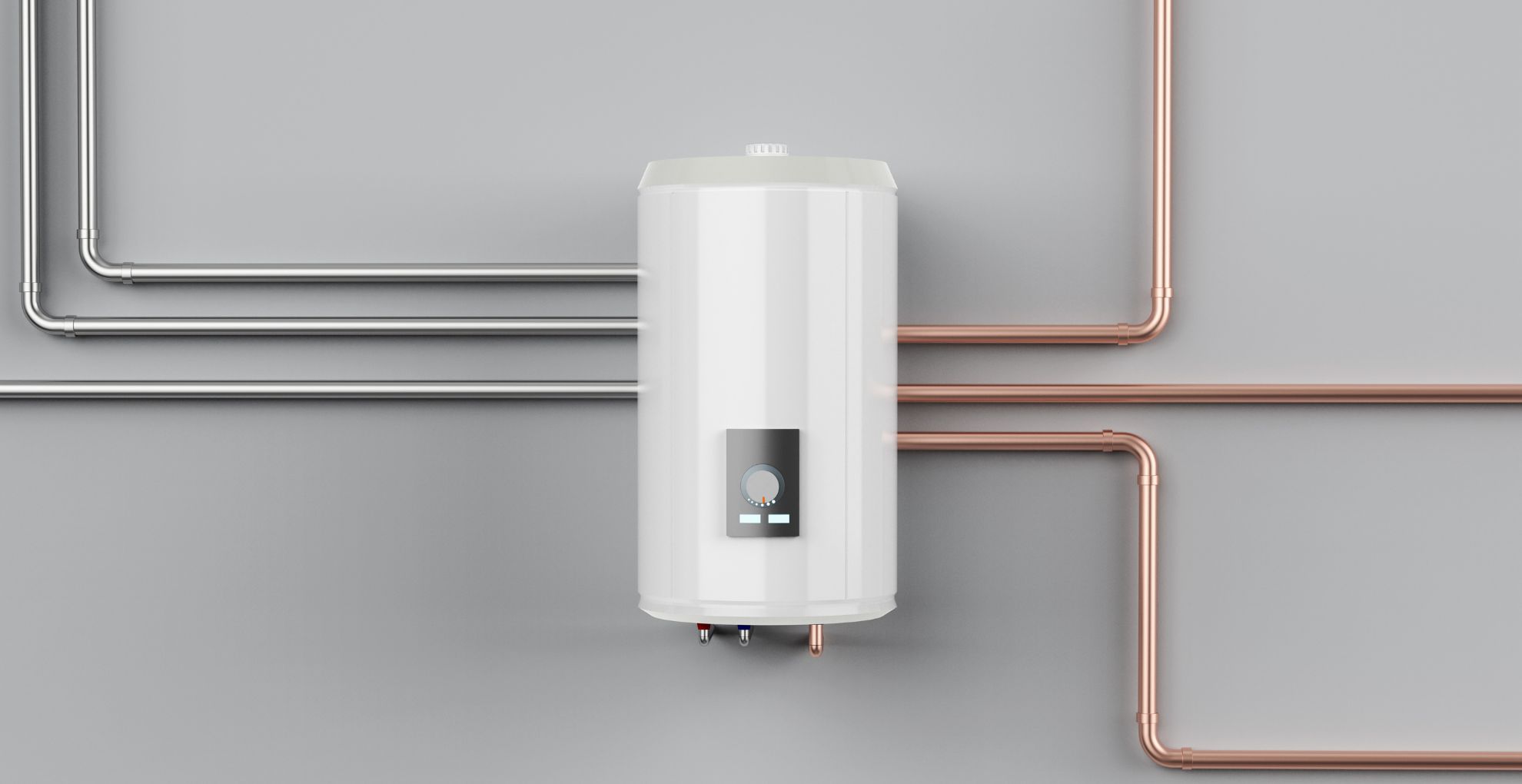Imagine starting your day with a perfectly warm shower, without worrying about your energy bill spiking. That’s the magic of Smart Water Heaters in 2025. These innovative appliances are not just about hot water anymore—they’re intelligent, energy-conscious, and a smart investment for your home.
In today’s age of connected living, smart home technology is revolutionizing how we heat water. From cutting down energy waste to offering remote control through your phone, Smart Water Heaters are making life more convenient and sustainable. Whether you’re building a new home or upgrading an outdated unit, this guide will walk you through everything you need to know about how these high-tech heaters save money and deliver comfort.
The Evolution of Water Heaters
From Traditional to Smart Technology
For decades, water heaters were basic household workhorses—reliable but inefficient. Traditional tank models constantly heated water, leading to standby energy loss. Even early tankless systems, though more efficient, could not learn from usage patterns or be remotely managed.
Fast forward to 2025, and technology has drastically changed how we think about home appliances. Smart Water Heaters represent a shift from passive systems to proactive ones—appliances that adapt to our lives, instead of the other way around.
What Makes a Water Heater “Smart”?
A Smart Water Heater connects to Wi-Fi and can be controlled through a mobile app or voice assistant. But it doesn’t stop there. These systems are equipped with sensors, AI-powered learning, and integration capabilities that:
- Adjust water heating based on your usage patterns
- Send alerts for leaks or maintenance needs
- Let you schedule heating cycles to match your routine
- Connect with smart home systems and energy grids
They’re not just smart—they’re intuitive and energy-wise.
Benefits of Smart Water Heaters in 2025
Major Energy Savings
One of the biggest draws of Smart Water Heaters is how they slash energy usage. By learning your daily habits, these systems only heat water when you need it. Many models offer “eco modes” that automatically adjust the temperature and heating cycles based on real-time demand.
In homes using time-of-use electricity pricing, smart heaters can schedule heating during off-peak hours, significantly lowering your bill. These energy-smart behaviors can lead to annual savings of up to 30% on water heating costs.
Enhanced User Convenience
Convenience is a powerful motivator. Imagine being able to turn on your water heater from your phone while you’re still in bed or on your way home from work. Or receiving a notification that a potential leak has been detected before it causes major damage.
Smart assistants like Alexa and Google Home make it easy to adjust settings with voice commands. And if you’re traveling, you can switch your unit to vacation mode remotely—saving energy while you’re away.
Longer Lifespan and Predictive Maintenance
Many Smart Water Heaters are built with longevity in mind. By continuously monitoring system performance, they can detect sediment buildup, corrosion, or performance dips before they escalate.
Instead of waiting for a breakdown, homeowners can take action based on real-time diagnostics. That means fewer emergencies, lower repair costs, and a water heater that lasts longer.
Cost vs. Savings – Are They Worth It?
Upfront Costs in 2025
There’s no denying that Smart Water Heaters come at a premium. Depending on the brand and type, you might pay anywhere from $800 to $2,500 for the unit itself. Add installation—especially for models requiring electrical or plumbing upgrades—and costs can climb.
But that investment isn’t just about tech; it’s about long-term efficiency, comfort, and savings.
Long-Term Energy Savings
Let’s put numbers into perspective. A typical 4-person household using a smart tankless system could save around $250–$350 annually on energy bills compared to a traditional unit. For smaller households, the savings might be lower but still meaningful over time.
These savings, paired with available rebates and tax credits, can help the system pay for itself in just a few years.
ROI Within a Few Years
In most cases, the return on investment (ROI) for a Smart Water Heater ranges between 3 to 5 years. Beyond that, it continues to deliver savings while enhancing your home’s overall value. If you’re planning to sell, having a smart and energy-efficient water heater is a modern upgrade many buyers appreciate.
Choosing the Right Smart Water Heater
Tankless vs. Hybrid vs. Smart Tank
There are several types of Smart Water Heaters, and each serves different needs:
- Tankless systems heat water on demand—ideal for smaller homes or energy-conscious users.
- Hybrid heat pump models use surrounding air to heat water, offering top-tier efficiency for larger homes.
- Smart tanks store heated water like traditional models but with modern tech for better control.
Choosing the right one depends on your space, household size, and budget.
Key Features to Look For
To make the most of your investment, consider models that include:
- Easy-to-use mobile apps with energy usage reports
- Compatibility with smart home systems
- Energy Star certification
- Leak detection sensors and vacation mode
- Long warranties and reliable customer support
Top Smart Water Heater Brands in 2025
Some of the best-rated brands this year include:
- Rheem – Known for strong mobile app support and reliable hybrid models
- A.O. Smith – Offers tank and tankless models with advanced leak protection
- Stiebel Eltron – German-engineered precision and energy efficiency
- EcoSmart – Budget-friendly smart tankless solutions for small homes
Each brings something different to the table—be sure to read customer reviews and check compatibility with your home’s setup.
Installation and Integration Tips
DIY vs. Professional Installation
While it might be tempting to save money with a DIY install, Smart Water Heaters involve electrical work, plumbing, and software setup. Improper installation can void the warranty or reduce performance.
Certified professionals ensure the job is done right and safely. Many brands even offer extended warranties for professional installs.
Smart Home Integration
Pairing your water heater with home automation tools boosts efficiency. Syncing with systems like Nest, Alexa, or smart thermostats allows for centralized control and optimization.
Some advanced homeowners even pair their water heater with solar panels or home batteries, creating an eco-efficient system that stores energy for water heating.
Maintenance Tips for Maximum Efficiency
Regular maintenance is simple but essential. Most apps will remind you when it’s time for a system check or cleaning. Follow through with:
- Monthly sediment flushes (for tank models)
- Annual inspections by a technician
- Keeping the software updated
These small steps extend the life and performance of your Smart Water Heater.
Government Incentives & Rebates in 2025
Federal Energy Tax Credits
Homeowners can take advantage of the Residential Clean Energy Credit, which covers up to 30% of qualifying energy-efficient equipment, including Smart Water Heaters.
To qualify, your model must meet federal energy efficiency standards. Keep receipts and manufacturer certifications for your tax records.
Local Utility Rebates
Many states and cities offer additional rebates. These can range from $100 to $600, depending on your location and the type of system. Check with your local utility or visit EnergyStar.gov for current offers.
Real-Life Stories: Homeowners Saving Big
In sunny Arizona, the Johnson family installed a Rheem hybrid smart water heater. With four kids and high water usage, they were used to large bills. Within months, they reported a 35% drop in their monthly utility costs, just by using the scheduling and eco mode features.
In a New York City condo, Lisa switched to a compact smart tankless model. Her app notified her when water use spiked unusually, alerting her to a leaky faucet. That quick heads-up saved her hundreds in potential water damage and helped her reduce waste.
These stories show that no matter your location or lifestyle, Smart Water Heaters can adapt to meet your energy goals.
Actionable Tips to Maximize Energy Savings
- Set a Water Heating Schedule: Only heat water during your peak usage times (mornings and evenings).
- Enable Eco Mode: Let the system automatically optimize energy use.
- Monitor Your Usage: Use app insights to track high-usage trends and make changes.
- Schedule Annual Maintenance: A well-maintained heater lasts longer and works more efficiently.
- Upgrade Other Systems: Pair with smart thermostats or solar systems for maximum benefit.
FAQs – Smart Water Heaters & Energy Savings
Are smart water heaters safe to use?
Yes. Most include built-in safety features like leak detection, temperature regulation, and automatic shut-off.
Do smart water heaters work with solar panels?
Absolutely. Many newer models are designed for seamless solar integration, maximizing your energy savings.
How much energy can I realistically save?
Depending on your household size and usage, you could save between 20% and 40% on your annual water heating costs.
Is a smart water heater difficult to use?
Not at all. Most apps are designed to be user-friendly, even for non-tech-savvy users.
Can I install it myself?
It’s possible, but professional installation is highly recommended to avoid issues and protect your warranty.
Final Thoughts
As we move further into a tech-powered, eco-conscious future, Smart Water Heaters are becoming a must-have for homeowners. They’re no longer a luxury—they’re a practical way to save energy, reduce costs, and enjoy better control over one of your home’s most essential systems.
So, if you’re ready to make a change that’s smart for your wallet and the planet, now’s the perfect time to invest in a Smart Water Heater.
Let your water heater do more than heat—let it think smartly, save wisely, and serve you better.
For more tips and inspiration, check out our latest articles on our website and start planning your next home upgrade with confidence.






